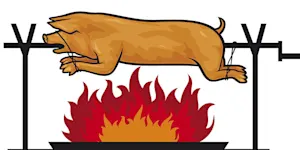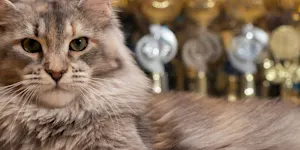What Makes This Word Tick
Bugbear may conjure images of a cuddly teddy, but don't be deceived—this word carries a delightful blend of the whimsical and the fearsome. Historically, a bugbear was an imaginary creature used to frighten children into good behavior. Today, it often refers to an irritant or nuisance, showing the word's charming evolution from spooky to slightly peeved.
If Bugbear Were a Person…
Picture a grumpy, slightly disheveled older fellow, always muttering under his breath about something or other. He's likely that neighbor who gets riled up about your grass being a quarter-inch too high. Yet, despite his fussiness, you can't help but find his quirks endearing.
How This Word Has Changed Over Time
Originally hailing from the world of folk tales, the bugbear has shed its terrifying reputation over the centuries. From a phantom meant to terrorize children, it’s morphed into a harmless term for life's daily annoyances. It's a testament to how language softens as societies grow calmer and more rational.
Old Sayings and Proverbs That Use Bugbear
While it’s not featured in many proverbs, the concept of the bugbear aligns neatly with the idea of "making mountains out of molehills." It's the perfect emblem for those pesky items on our to-do lists that grow larger in our minds than in reality.
Surprising Facts About Bugbear
Did you know there's an entire species of bear beetle, scientifically named Blepephaeus bugbear? Though the exoskeletal version of our bugbear friend is quite real, it’s fortunately much less scary than its folkloric counterpart.
Out and About With This Word
In conversation, bugbear often makes its appearance when someone is venting about their particular pet peeve. It might pop up during a book club meeting when someone just has to mention their pet grammar irritant or while airing complaints about the local traffic.
Pop Culture Moments Where Bugbear Was Used
Bugbear has found a cozy home within role-playing games, notably in the Dungeons & Dragons universe where it describes a goblin-like creature—grumpy, of course, just like its linguistic roots suggest.
The Word in Literature
You'll find bugbears sneaking their way into fantasy novels, often employed to describe an unusually irksome yet minor foe. Its flavor of mild disdain suits works where tiny troubles build to large adventures—think Tolkien or Pratchett.
Moments in History with Bugbear
Though the word doesn't appear, the concept of a bugbear could capture the spirit of Cold War paranoia—like a vague, pervasive fear that hovers on the edge of consciousness, whether the threat is real or imagined.
This Word Around the World
In the translated pages of other languages, bugbear takes different shapes. The French might say "bête noire" for something that irritates, while the Spanish have "coco" for a fearsome creature akin to the bugbear of old.
Where Does It Come From?
The origins of bugbear trace back to the Middle English "bugge," meaning a frightening thing, combined with "bear," the animal. This hybrid of terms conjured the image of a spectral beast—a fantastical bogeyman of sorts.
How People Misuse This Word
People sometimes use bugbear interchangeably with words like "obsession" or "addiction," missing its original meaning of annoyance rather than a focus of energy or effort.
Words It’s Often Confused With
Bogeyman: Both terms relate to imaginary beings but bugbear is more about nuisance than night terrors.
Pet Peeve: While similar, bugbear aligns more with minor irritations, whereas pet peeves can sometimes be more personal quirks.
Additional Synonyms and Antonyms
For synonyms, think "annoyance," "nuisance," or "vexation." Antonyms might include "delight" or "pleasure," which are certainly not the feelings bugbears evoke!
Want to Try It Out in a Sentence?
"Every time the Wi-Fi slows to a crawl, it becomes the family's number one bugbear, sending everyone into fits of frustration just before dinner."
















